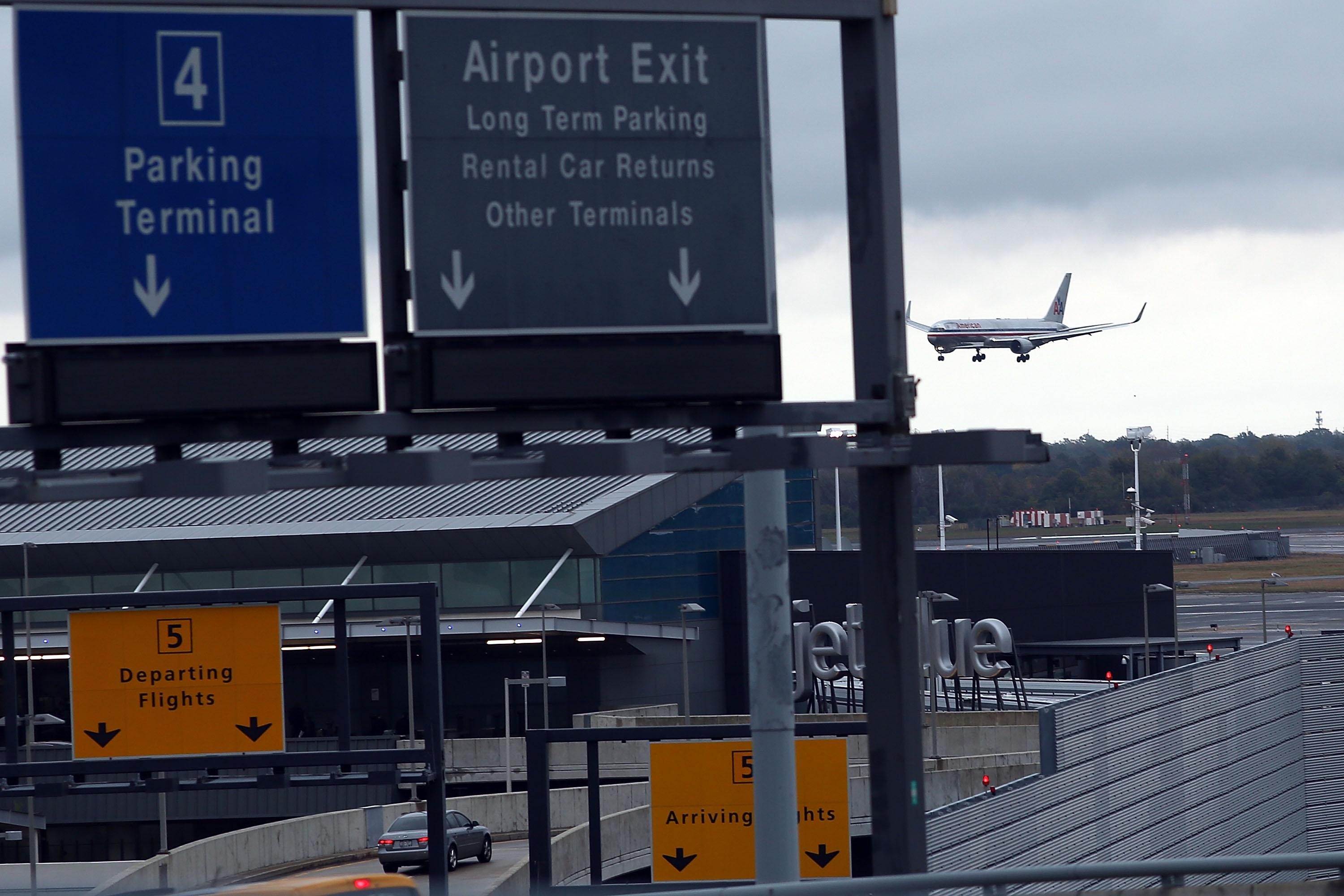On Saturday, New York’s John F. Kennedy International Airport became the first in the country to implement a program to screen passengers coming from the three West African countries worst-hit by Ebola. Four additional airports are set to start the same program within the next week that will target passengers from Guinea, Liberia and Sierra Leone. Officials estimate some 150 people travel from or through those three countries to the United States every day and 95 percent arrive in the United States through one of the five airports, according to the Associated Press.
So what does the screening consist of? Taking the temperature of passengers from the three countries and then interviewing those who have a fever to try to figure out whether they may have come into contact with anyone infected with Ebola. The Centers for Disease Control and Prevention immediately made it clear nobody saw this as a foolproof plan. “No matter how many of these procedures are put into place, we can’t get the risk to zero,” Dr. Martin Cetron, director of the CDC’s Division of Global Migration and Quarantine, told reporters.
Several experts though say that even warning it isn’t perfect masks the fact that screenings are pretty much useless. One global health law professor tells Reuters that airport screenings “had virtually no effectiveness” during the 2002 SARS outbreak and now passengers are already screened when they leave affected countries. Yet looking at it purely as a public health issue may not be the best way to understand why screenings could be useful. “I see this more as something to calm the nerves of the American people, the British people, the French people and so on, rather than actual screening,” an expert tells CNN.
A recent Bloomberg editorial advocated for screenings precisely for psychological reasons:
Finding people with the disease isn’t really the point. As much as 90 percent of the economic cost of an epidemic can come from the “fear factor” an outbreak creates, World Bank President Jim Yong Kim says. The bank estimates that the economic impact of the disease could exceed $32 billion by the end of next year.
If these screenings can keep Americans and Europeans from panicking—or, in some cases, panicking further—then those countries’ governments can more easily focus on the real issue: Containing, and ultimately reversing, Ebola’s spread in West Africa. It’s important that this public-relations campaign of enhanced Ebola screenings doesn’t get in the way of that goal.
